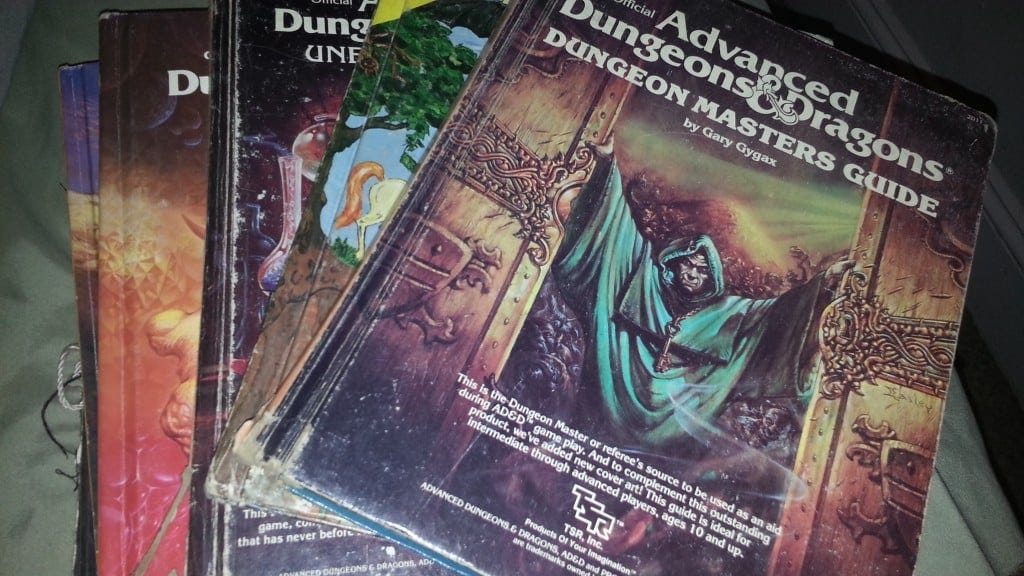Ever play D&D?
You probably already know that it was a huge part of me growing up. I’ve written about how creating and managing homebrew campaigns gave me the right mixture of planning and fluidity that running a business requires.
Playing with a group of friends is an incredible way to create a story together. Characters in D&D give you a way to act out an unfamiliar role, and to walk in the shoes of an entirely different type of person.
You can think through situations you might never experience in real life. When are you ever going to outsmart a goblin in the real world, or find a magical bracelet that protects you from arrows?
So yes, you have some idea of how sacred and important this invention is to me! It is therefore with some excitement that I want to ask you for a little bit of help.
I’m going to play D&D very soon with my friend Tim, his wife, and a small group of other folks. It has been around 25 years for me, give or take, and I think the last time I played was with Tim!
It’s time to pick a character class, which is generally a good first step for any D&D player. This has nothing to do with whether you’re upper class or lower class—here, class is tantamount to your profession, so you’ve likely spent time developing those skills.
That is, unless you’ve been granted (or cursed with) those skills. I’m not saying these types of characters didn’t exist back when I played 1st edition, but the main menu was certainly a lot smaller.
Another thing that was very different (at least in terms of the way I remember us playing) was that you’d typically roll for your character attributes first, then pick your character class.
You ended up with six of these character attributes, all between the values of 3 and 18. If you roll three six sided dice millions of times and look at the probability distribution, you’re going to have lots of numbers in the middle range between 8 and 12, and not terribly many 15s or 16s. 17 or 18 was extraordinary in the game, giving you bonuses whenever applicable.
If you ended up with high strength and dexterity scores, you might want to be a fighter. If you had a low constitution but a high intelligence and wisdom, you might consider being a magic-user. These days, this is inverted: the first step most campaigns recommend is to pick character class.
This makes a ton of sense! If you’re a DM and you’ve designed a campaign to be interesting for everyone in the party, you don’t necessarily want five barbarians in there—nor would you like to have five wizards, unless it’s a very specific type of game you’re after. Generally, it’s more fun to have a balance of character types.
My main goal here is to immerse into the character type, but I don’t have particularly strong feelings about which type to become. I want to create a character that fits in pretty well with the party, of course, and the first thing to do is to check in with the DM—so any suggestions will end up being run by her.
Alley has already picked a warlock, so I’d probably like to avoid that class, but that leaves eleven other main character classes outlined in the newest edition of the Player’s Handbook:
Barbarian
Bard
Cleric
Druid
Fighter
Monk
Paladin
Ranger
Rogue
Sorcerer
Wizard
My own quick observations indicate that many of these would have been lumped into a wider category. Fighter was a superclass that included paladins and rangers, and barbarians weren’t mentioned as a class in the OG set. I just now looked it up, and apparently we only had four main classes: cleric, fighter, magic-user, and thief. There were other subclasses, but there were special circumstances that allowed you to play them.
Even still, the complex storytelling and immersion you could attain back then was incredible, like nothing else around. I’m going to play again with a much more expanded world, and with some clever minds, we will tell a story together.
Help me narrow it down to three of these twelve today, if you don’t mind. I’m very much open to any of them (except warlock), and my main goal is to immerse myself in the character. I’m excited to do that regardless of the class.




I personally always enjoyed magic characters in video games. Though I tend to enjoy sci-fi settings like Fallout, where I tend to make my character smart and agile at the expense of endurance and strength. I also prefer long-range skills (e.g. small guns) over melee skills. Which actually maps nicely to wizards in the fantasy equivalent.
All of that to say: Go for monk, sorcerer, or wizard.
Paladin just because it narrows your character decisions down if you really want to play into a role.
Rogue if you want to have a bazilion actions later on as you level up.
Bard if you want to be able to buff your party. Plus you get to sing!